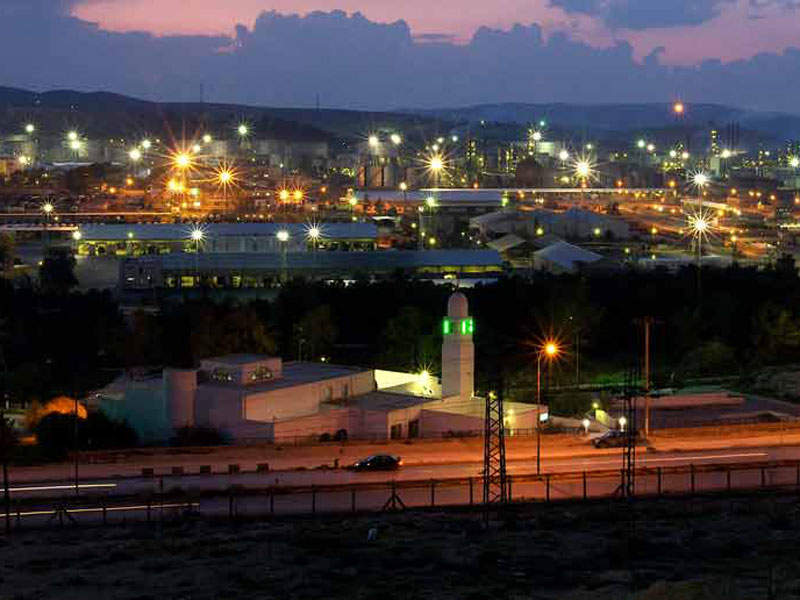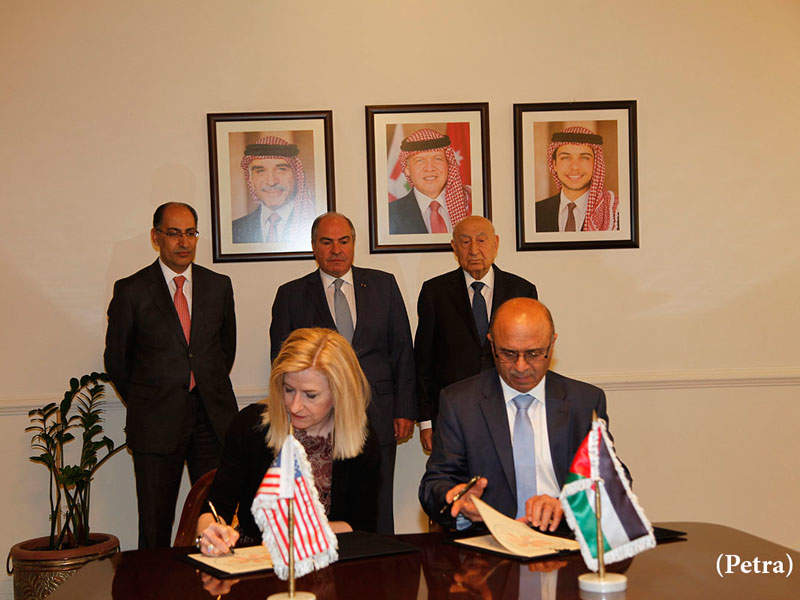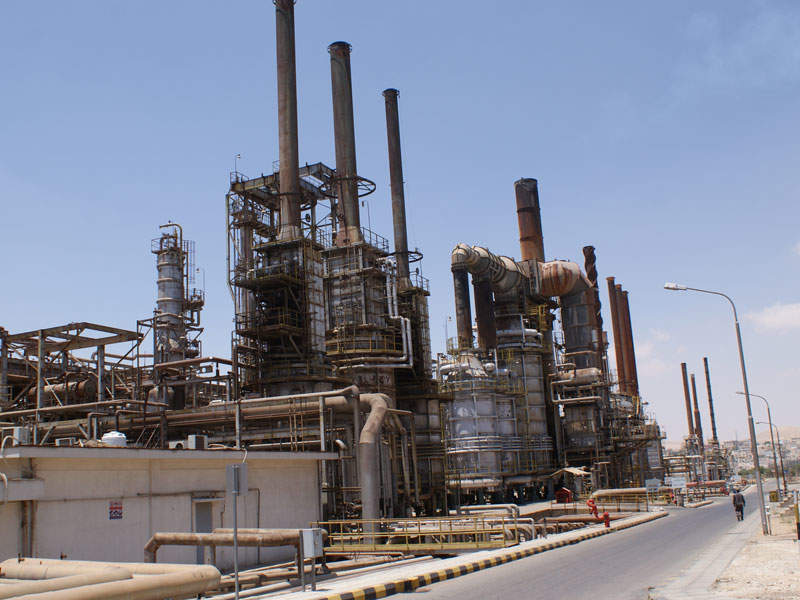Jordan petroleum refinery is located in Zarqa, Jordan, and owned by the Jordan Petroleum Refinery Company (JPRC).
The refinery is being expanded to increase its capacity from the existing 60,000 barrels per day (bpd) to 120,000 barrels per day in order to meet the needs of the Jordanian market for high-value products.
The expansion plan will also make way for the refinery to upgrade its fuel quality to the Euro V emission standards.
Jordan petroleum refinery is expected to improve the quality of its output and convert heavy fuel oil into products such as diesel, jet fuel and gasoline.
Details of Jordan petroleum refinery expansion
The Jordan petroleum refinery expansion will add crude and vacuum distillation units to the site in order facilitate the distillation of crude oil into various fractions.
Unicracking™ and hydrotreating units will also be installed at the facility, which will help in the production of clean distillate.
In addition, CCR Platforming™, Penex™, MinAlk™, Merox™ and Selectfining™ units will be added to produce clean-burning high-octane motor fuels.
A Polybed™ PSA unit will also be added to purify hydrogen.
The residue hydroprocessing unit is to be equipped with Veba Combi-Cracking (VCCTM) technology and will produce low-sulphur naphtha, ultra-low-sulphur diesel, and feed for the low-sulphur fluid catalytic cracker.
Technologies used
VCC™ technology is capable of processing a variety of feed stocks using refinery residues.
The technology produces fuels that are environmentally friendly and do not require any further processing.
The technology is known to achieve 95% conversion for a wide range of feed stocks in a single pass.
It uses a two-stage process, with the first stage comprising the primary conversion of the feed, while the second stage is integrated for hydrotreating / hydrocracking of the converted products.
Unicracking™ is Honeywell’s next-generation unicracking catalyst technology, which uses a family of catalysts designed to provide hydrogen management solutions.
The technology meets the production requirements of a wide range of diesel and naphtha products.
Furthermore, the Polybed™ PSA system turns low-value refinery off gases into high-value 99.9% purity hydrogen at essential feed pressure.
The enhanced purity of the hydrogen directly benefits the hydroprocessing units by minimising hydrogen losses and extending the catalyst life and turnaround times.
Contractors involved
Honeywell UOP was contracted by the JPRC refinery to provide engineering design and consultancy services.
The company will also manage the licensor services for the refinery, as well as be responsible for the technology licensing, catalysts, process equipment supply and start-up services.
KBR was contracted by JPRC to provide its Veba Combi-Cracking (VCC™) technology for the residue hydroprocessing unit of the refinery.
The company will provide the basic design for the unit using its innovative VCC slurry phase hydrocracking technology.
The facility’s crude and vacuum distillation units have been designed by Process Consulting Services.
Benefits of the expansion project
Jordan petroleum refinery expansion is anticipated to help meet the local fuel demand, as well as contribute to Jordan’s overall socio-economic development.
In addition to creating new investment opportunities, it is also expected to create new job opportunities in Jordan and aid in human resources development across the country.
Financing details
The expansion project will cost an estimated $1.6bn and is being funded by the JPRC and the Jordan Investment Commission.
Marketing commentary on Jordan Petroleum Refinery Company
JPRC is Jordan’s only oil refining company and is headquartered in the country’s capital city, Amman.
The company’s refinery is situated in Zarqa, roughly 35km east of Amman.
The refinery is primarily engaged in the manufacture of different types of fuels and petrochemicals.






